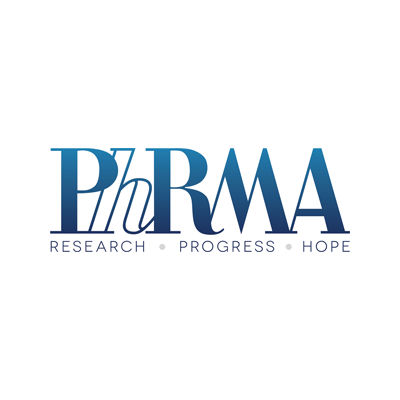After 33 years, Geron’s first approval marks a turn in Nobel-winning science
Drug ApprovalPhase 3
Faye Feller, executive vice president and chief medical officer of the biotechnology company Geron, was giving her child a bath when her husband ran into the bathroom with her cellphone.
“Something’s going on at work,” he said. Geron’s blood cancer drug, a first-of-its-kind treatment called imetelstat, had just been approved by the Food and Drug Administration.
Feller was immediately thrilled, but the news “really hit home” when she logged onto her company’s website following the announcement.
“I saw the popup that said, ‘Now approved. Rytelo in the U.S.,’” she said, referring to the drug’s new brand name. “That brought tears to my eyes.”
In the biopharmaceutical industry, success is measured in decades. The lobbying group PhRMA estimates it takes an average of 10 to 15 years and $2.6 billion to develop one new medicine. Even by this standard, Rytelo had a long path to approval. The drug had been in the works for 33 years, including “about 20 years of development in patients,” Feller said.
“We've had a strong belief in bringing this mechanism to patients that has really persisted,” Feller said.
That mechanism is based on the Nobel Prize-winning science of telomeres, specialized DNA sequences at the ends of chromosomes that dictate the lifespan of a cell, and telomerase, an enzyme that lengthens telomeres and keeps the cell alive.
“Cancer cells upregulate telomerase in order to maintain immortality,” Feller said. “By targeting cancer cells that have this abnormally excessive expression of telomerase, we're getting down to treat an underlying cause of disease.”
After initial studies in other cancers, investigators saw signals in blood malignancies, Feller said. Now, Rytelo is approved in adult patients with lower-risk myelodysplastic syndromes who have transfusion-dependent anemia. Because of their anemia, these patients become dependent on frequent red blood cell transfusions, which can reduce quality of life and shorten survival. Moreover, these patients need transfusions at least twice a month and monitoring in between.
“I believed in the team and I believed in the drug. I thought, as a drug developer, this was the most de-risked risk I could take.”

Preview
Source: BioPharmaDive
Faye Feller
Executive vice president, chief medical officer, Geron
Rytelo has the potential to allow patients to replace frequent and often unpredictable transfusions with a single monthly dose of the drug.
“We anticipate that this can ease some of the sociological [and] psychological burden of transfusions, in addition to the clinical benefits,” Feller said.
A winding path
Rytelo’s long journey to approval began when two scientists, Elizabeth Blackburn and Carol Greider, discovered telomerase in 1984. Eventually, that discovery led to breakthroughs for telomerase’s role in cancer; the formation of Geron, for which Blackburn and Greider were scientific advisors; and eventually, the Nobel Prize for the duo.
The drug had several stops and starts over the years as Geron looked for the appropriate cancer to target. Even after identifying hematologic myeloid malignancies, Geron experienced another bump in the road when, after four years, Johnson & Johnson, Janssen Pharmaceuticals division chose to end an alliance with the company to help develop and commercialize imetelstat.
The ill-fated deal was what brought Feller to Geron. Janssen had recruited her from Memorial Sloan Kettering Cancer Center in New York to work on imetelstat. After Janssen terminated the partnership, Feller and others moved to Geron to continue working on the drug. She called moving to a small biotech scary “but definitely worth it.”
“I believed in the team and I believed in the drug,” she said. “I thought, as a drug developer, this was the most de-risked risk I could take.”
In addition, Feller credits “a large investor community and financial institutions that also have this belief in the science and in the data and in the potential and have supported us along the way.”
Now, the company is commercializing Rytelo and advancing the rest of its pipeline, which includes a number of programs in the discovery, preclinical and clinical stages. Geron is also investigating telomerase inhibition across several myeloid hematologic malignancies.
Among them is a phase 3 trial of imetelstat in patients with myelofibrosis.
“We're pretty proud that we're the first study in this patient space to look at overall survival as a primary endpoint,” Feller said. “Once that study reads out successfully, that hopefully will be our next … indication.”
Meanwhile, Geron is planning a targeted launch of Rytelo “to a concentrated prescriber base of approximately 8,000 [healthcare providers]. This covers approximately 2,200 targeted accounts, where we expect around 70% of patients to be treated in the community hematology setting,” a company spokesperson told PharmaVoice via email. Geron expects Rytelo to be available in the distribution channel by the end of this month.
The company believes Rytelo can become part of the standard of care, since there’s a need for additional therapies in lower-risk myelodysplastic syndrome and about 10% of those patients “have very limited treatment options.” Other subsections of the population also have poorer outcomes and a high transfusion burden, the spokesperson said.
Now, Feller said there’s “huge enthusiasm and excitement” among physicians to bring Rytelo to patients. After popping that initial bottle of champagne, she’s turning back to drug research.
“With the approval, we're transitioning … into a commercial company,” she said. “But it's really important to me and incumbent on me to maintain our strong development.”
'
For more details,please visit the original website
The content of the article does not represent any opinions of Synapse and its affiliated companies. If there is any copyright infringement or error, please contact us, and we will deal with it within 24 hours.
Organizations
Indications
Targets
Drugs
Hot reports
Get started for free today!
Accelerate Strategic R&D decision making with Synapse, PatSnap’s AI-powered Connected Innovation Intelligence Platform Built for Life Sciences Professionals.
Start your data trial now!
Synapse data is also accessible to external entities via APIs or data packages. Leverages most recent intelligence information, enabling fullest potential.





